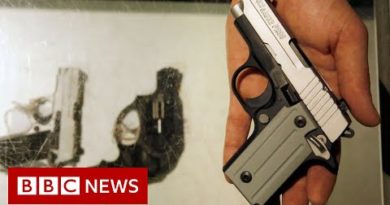Why Did Bill Cosby Lose in Civil Court but Was Released from Prison?
Bill Cosby’s reputation is once again in shambles. A California jury found him liable for the 1975 sexual assault of a minor at the Playboy Mansion and awarded the victim $500,000 in compensatory damages. This undermines Cosby’s claims of full exoneration after his aggravated indecent assault conviction was overturned by the Pennsylvania Supreme Court.
If you haven’t been following the proceedings, you might wonder how it’s possible for him to win one case and lose the other.
Easy.
Different Circumstances
Each case involved entirely different people and different circumstances. In Pennsylvania, Cosby was accused of sexually assaulting Andrea Constand in 2004 at his residence in Cheltenham. The prosecutor persuaded a unanimous jury that Cosby invited Constand over to his house, gave her drugged wine, and raped her after she passed out.
In contrast, Cosby’s then underage victim in the California case is Judy Huth. In 1975, a 15-year-old Huth accepted his invitation to join him at the Playboy Mansion in Los Angeles. She persuaded nine members of the 12-member jury that Cosby led her into an isolated bedroom, tried to put her hand down his pants, then forced her to perform a sex act on him.
So two different victims, different events, different times, and different places.
Different Burdens of Proof
But there’s more. Each case had different burdens of proof. The Pennsylvania case was a criminal case, where the prosecutor bears the burden of proving each element of the crime “beyond a reasonable doubt.” This is the highest legal standard in the law, and it’s hard to meet. In closing arguments, some lawyers tell juries that this is the same level of certainty you need to have when making important life decisions, such as whether to marry someone.
(Hold on to the thought that the Pennsylvania jury believed that the prosecutor had met that burden).
On the other hand, the California case was a civil case, where the plaintiff has to prove that each element of the claim is “more likely than not.” That means you only need to persuade the jury that based upon your evidence, the likelihood of a fact is greater than 50% — slightly better odds than a coin flip.
“Fundamental Fairness”
The third reason you can have different results depends on who is bringing the lawsuit. Both juries concluded that Cosby sexually assaulted women. And (at least so far), the judges agree with these findings. The reason Cosby’s Pennsylvania conviction was thrown out had nothing to do with the facts of the case. It was reversed because of legal due process.
Prosecutors Can’t Change Their Minds …
In 2005, a Pennsylvania prosecutor learned about Constand’s accusations. His office investigated her claims and concluded they couldn’t prove their case beyond a reasonable doubt unless Cosby confessed. But Cosby instead asserted his Fifth Amendment right to remain silent.
So that Constand could get some measure of justice, the prosecutor publicly announced his decision. This stripped Cosby of his right to stay silent — he wasn’t at risk of incriminating himself, you see — and opened him up to being forced to testify in a civil case brought by Constand. Cosby gave a deposition in her case and made several incriminating statements under oath.
Then a new prosecutor took office and decided to charge Cosby with aggravated indecent assault. The judge in that trial allowed the jury to hear the incriminating statements Cosby made in the civil case. The jury concluded that Cosby was guilty beyond a reasonable doubt and convicted him.
… If a Defendant Relies on Their Promises
In a split decision, the Pennsylvania Supreme Court overturned Cosby’s conviction. A majority of the court concluded that the prosecutor’s announcement was an unconditional promise not to prosecute.
While prosecutors have wide discretion, due process requires them to abide by their promises if the defendant relies on them. Cosby never would have testified in the civil case if he knew he was still subject to being prosecuted criminally, so fundamental fairness — fairness to Cosby, anyway — barred his prosecution for that offense.
No Legal Conflict Between the California and Pennsylvania Cases
We should point out that Cosby maintains his innocence in both cases, and his lawyers promised to appeal the California decision. We will see what comes of that. In the meantime, know that there is nothing improper about two different results in this situation, even if they seem to be inconsistent.
And with at least one more civil case against him on the horizon, this won’t be the last we hear from Bill Cosby.
You Don’t Have To Solve This on Your Own – Get a Lawyer’s Help
Meeting with a lawyer can help you understand your options and how to best protect your rights. Visit our attorney directory to find a lawyer near you who can help.






